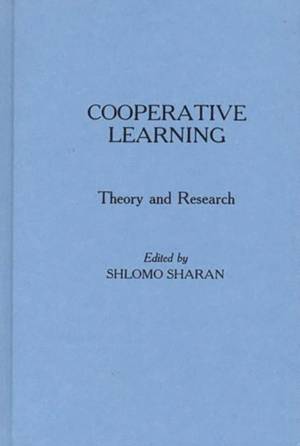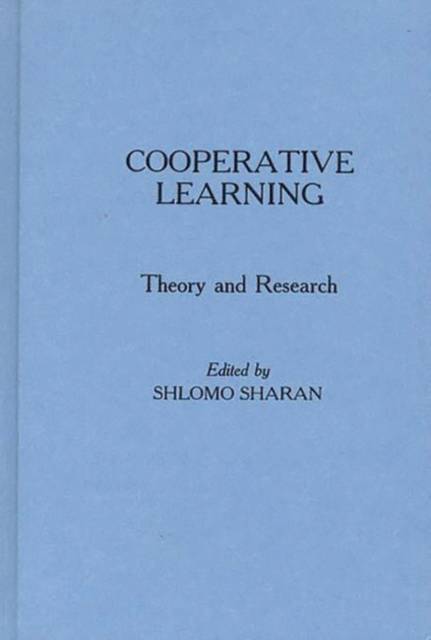
- Retrait gratuit dans votre magasin Club
- 7.000.000 titres dans notre catalogue
- Payer en toute sécurité
- Toujours un magasin près de chez vous
- Retrait gratuit dans votre magasin Club
- 7.000.000 titres dans notre catalogue
- Payer en toute sécurité
- Toujours un magasin près de chez vous
Description
This collection of theoretical and empirical research addresses the most recent advances in cooperative learning and its applications, implications, and effects on teachers and students at both the elementary and secondary levels. The central concern of the contributors is how a set of particular instruction methods affects people in classrooms and what this form of instruction contributes or fails to contribute to them. In their attempt to illuminate some of the major effects of cooperative learning methods, the contributors discuss a number of theoretical and practical issues not covered elsewhere, including the effects of cooperative learning on teachers, on high school science studies, on student motivation, and on the acquisition of group process and learning skills. Educational psychologists and researchers as well as teachers in training will find Cooperative Learning an illuminating source of information about a model of teaching that, the contributors argue, produces a wide range of positive effects on both the teacher and student populations.
Taken together, these chapters demonstrate a wider applicability and more socially and psychologically important impacts of cooperative learning than have been documented before. Among the topics addressed are cooperative learning and achievement, treating status problems in the cooperative classroom, cooperative learning models, teachers' verbal behavior in cooperative and whole-class instruction, and the effects of cooperative learning on ethnic relations. The contributors are united in their belief that cooperative learning promises to provide a viable alternative to the predominantly verbal-presentation type of teaching that is still the norm in most Western classrooms. The research reported here will help establish a central role for cooperative learning methods in the training and practice of classroom instruction as we enter the 1990s.Spécifications
Parties prenantes
- Auteur(s) :
- Editeur:
Contenu
- Nombre de pages :
- 328
- Langue:
- Anglais
Caractéristiques
- EAN:
- 9780275928872
- Date de parution :
- 09-03-90
- Format:
- Livre relié
- Format numérique:
- Genaaid
- Dimensions :
- 161 mm x 237 mm
- Poids :
- 607 g







